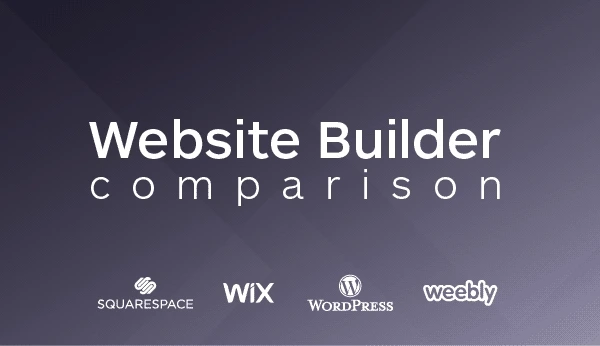
In today's digital age, having a professional and functional website is crucial for businesses, creatives, and entrepreneurs. Among the most popular website builders are WordPress, Wix, and Squarespace. Each platform has its strengths and weaknesses, catering to different user needs. This article provides a detailed comparison to help you choose the best option for your website.
- WordPress: The Powerhouse for Customization
WordPress powers over 40% of the web, making it the most popular website platform worldwide. It comes in two forms: WordPress.org (self-hosted) and WordPress.com (managed hosting). This comparison focuses on the self-hosted version, which offers greater flexibility.
Pros
- Unlimited Customization: With thousands of themes and plugins, WordPress offers unmatched design and functionality options.
- Scalability: Suitable for blogs, e-commerce sites, portfolios, and even large-scale websites.
- SEO-Friendly: Advanced plugins like Yoast SEO make optimizing your site for search engines easier.
- Community Support: A vast global community provides resources, tutorials, and forums for troubleshooting.
- Steeper Learning Curve: Requires some technical knowledge, especially for advanced customization.
- Additional Costs: You’ll need to pay for hosting, domain registration, and possibly premium themes or plugins.
- Maintenance: Regular updates to WordPress core, themes, and plugins are necessary to keep your site secure and functional.
Tech-savvy users, developers, or anyone looking for a highly customizable and scalable website.
2. Wix: Intuitive and User-Friendly
Overview
Wix is a drag-and-drop website builder that simplifies the process of creating a website. It’s designed for users with little to no technical skills.
Pros
- Ease of Use: The drag-and-drop editor is beginner-friendly, allowing you to build a website visually without coding.
- All-in-One Solution: Hosting, domain registration, and security features are integrated.
- Variety of Templates: Over 800 professionally designed templates tailored to different industries.
- AI Website Builder: Wix ADI (Artificial Design Intelligence) can create a site based on your answers to a few questions.
- Limited Flexibility: Once you choose a template, switching to another template requires starting over.
- Not Ideal for Large Sites: Less suitable for complex, large-scale websites with heavy traffic.
- SEO Limitations: While Wix has improved its SEO tools, it still doesn’t match the capabilities of WordPress.
Small businesses, freelancers, and individuals seeking a quick and easy way to get online without technical expertise.
3. Squarespace: Sleek Design for Creatives
Overview
Squarespace is known for its elegant templates and minimalist design, making it a popular choice for artists, photographers, and designers.
Pros
- Stunning Templates: High-quality, visually appealing templates optimized for mobile devices.
- All-in-One Solution: Hosting, domains, and SSL certificates are included.
- E-Commerce Capabilities: Robust tools for creating and managing an online store.
- User-Friendly Interface: Intuitive editor with drag-and-drop functionality.
- Limited Customization: Compared to WordPress, Squarespace offers fewer customization options.
- Higher Cost: Monthly pricing is more expensive than Wix or a basic WordPress setup.
- Learning Curve: While simpler than WordPress, some users find Squarespace’s editor less intuitive than Wix.
Creative professionals, photographers, and small businesses looking for beautiful design with minimal hassle.
Comparison Table
| Feature | WordPress | Wix | Squarespace |
| Ease of Use | Moderate | Easy | Moderate |
| Design Flexibility | High | Moderate | High |
| E-Commerce | Advanced (via plugins) | Basic to Moderate | Advanced |
| SEO Tools | Excellent (via plugins) | Moderate | Good |
| Cost | Variable (hosting + plugins) | Fixed monthly plans | Fixed monthly plans |
| Support | Community-driven | Dedicated support team | Dedicated support team |
- Choose WordPress if you value customization, scalability, and control over your site’s design and features. It’s ideal for tech-savvy users or those with access to web developers.
- Choose Wix if you want a quick, easy, and affordable way to build a website without coding or dealing with complex configurations.
- Choose Squarespace if you prioritize sleek design, stunning templates, and simplicity, especially for showcasing creative work or running a small e-commerce store.
